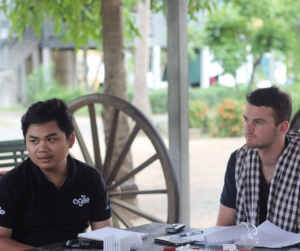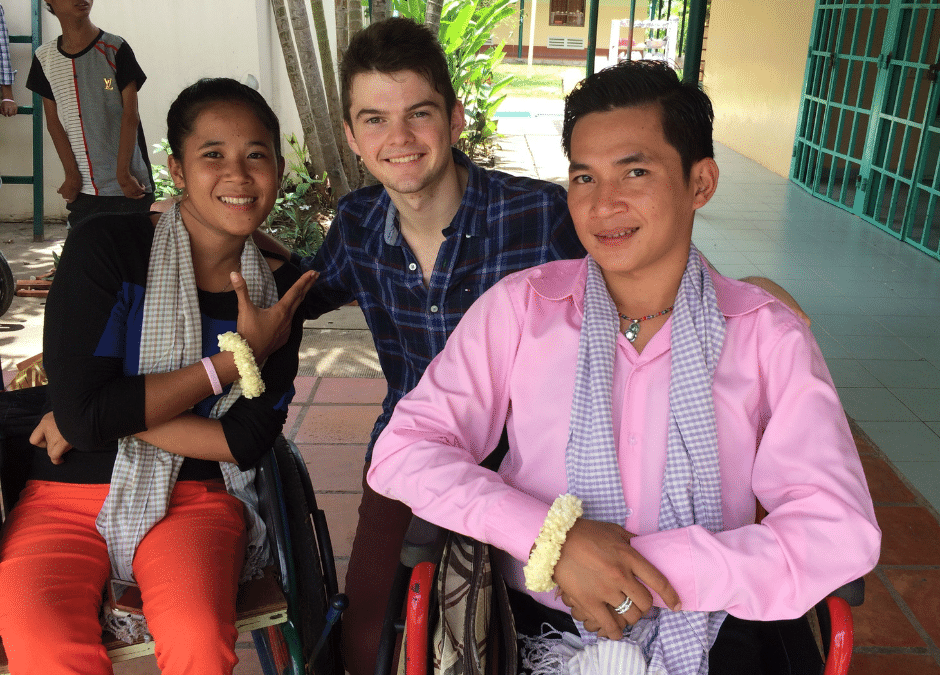In 2019, as a final year Systems Engineering student at the Australian National University (ANU), Liam Highmore was accepted into EWB’s Research Challenge – the final-year offering in the EWB Challenge series. EWB’s unique research approach collaborates with community organisations, universities and research institutes. It connects researchers, academics and institutions to develop innovative solutions to real-life challenges.
Liam was no stranger to EWB – he was a participant in EWB’s Humanitarian Design Summit to India in 2015, and had also helped out at the ANU’s EWB University Chapter. Liam’s trip to Cambodia for his research project also happened to coincide with an EWB Humanitarian Design Summit to Cambodia (he then became one of the rare lucky ones to experience two EWB Design Summits!).
Apart from the professional development and immersive-learning aspect of attending the two-week study tour, the experience also enabled Liam to meet those people he’d be working with during his three weeks of field research. His thesis aimed to explore whether 3D printing technology could be leveraged to provide affordable, suitable and meaningful assistive devices for people living with disability in Cambodia.
 The research project wasn’t short on challenges. The field research consisted of a series of design workshops and semi-structured interviews aimed at empowering people with disability to use their knowledge and experience to co-design appropriate assistive technology. Liam was ever-mindful of being culturally appropriate, and the need to navigate the most efficient, respectful and timely way of including people with disability in the design process.
The research project wasn’t short on challenges. The field research consisted of a series of design workshops and semi-structured interviews aimed at empowering people with disability to use their knowledge and experience to co-design appropriate assistive technology. Liam was ever-mindful of being culturally appropriate, and the need to navigate the most efficient, respectful and timely way of including people with disability in the design process.
“At every point of the journey I was looking at local community partner Agile Development Group for guidance – I was fortunate to have them watching over me most of the time,” said Liam.
The language barrier also made communicating with people during the research more difficult, but luckily Liam had access to a Khmer translator to help him understand and exchange information with participants. Another unexpected challenge was when Liam contracted dengue fever during his field research. Fortunately for him, it wasn’t contagious so he was able to continue his research.
There were also plenty of highlights, particularly around the community and their engagement with technology.
“The joy that participants had in seeing and interacting with 3D printing and assistive technology was awesome to see. There is a real sense of optimism and a forward-looking approach which I think is quite indicative of the future Cambodia is heading towards,” said Liam.
Having completed his thesis, Liam’s supervisor at ANU, Jeremy Smith, encouraged him to submit his piece into the Global Undergraduate Awards – the world’s leading academic awards program which recognises top undergraduate work.
“I actually had forgotten I entered the awards – that was until I learnt I was the Oceania Regional Winner! It was really a fantastic achievement for humanitarian engineering,” said Liam.
“The past year has definitely reaffirmed and reassured me that engineers, and everyone for that matter, should be doing things to create a positive impact. If everyone had a similar mentality, the world would be a better place,” said Liam.


